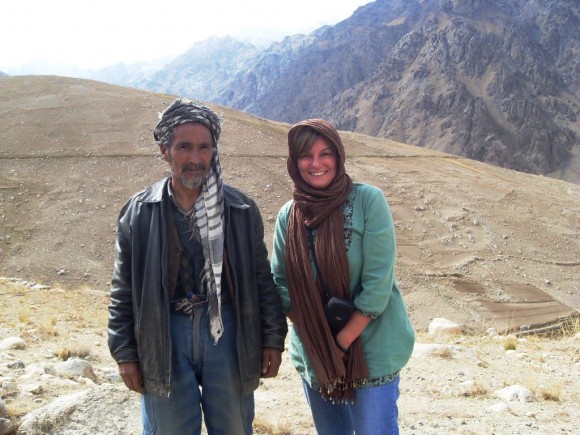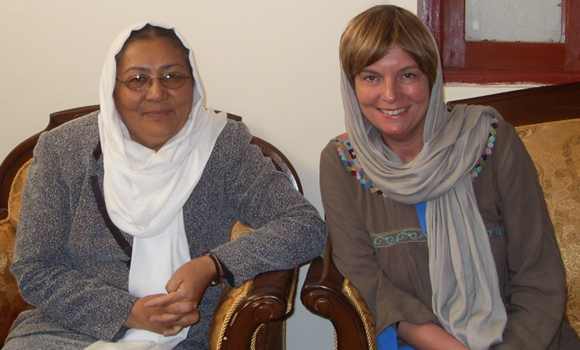I have now left Afghanistan after nearly 21 months there. Just over a year ago, I spent four days in Bamyan province considering a new agriculture programme supported by UK and New Zealand aid. One year later I accompanied our Ambassador on his first visit to the province, and saw how the programme was progressing.
Bamyan is one of the most peaceful provinces in Afghanistan and home to the Hazara people who are Shiite Muslims. They live within high mountains and a harsh climate with very little rainfall and freezing winters. Bamyan city is the only provincial capital without electricity, so we first visited the solar energy arrays on the hills outside the city. Very soon, much of the city will have clean electricity for the first time.

Next we drove a few kilometres to meet farmers benefiting from the Agriculture Support Programme (ASP). ASP works with farmer cooperatives to increase the productivity and the value of their livestock, wheat and potatoes. The farmers told us how the cooperative now had a tractor part financed by ASP and themselves. They were given access to cheap finance and used it to buy a threshing machine for wheat which has reduced the time needed for farming. Now it takes one and a half days compared to six weeks by hand. Their children were able to attend school regularly, and their wives and sisters spent more time tending the goats and sheep. The farmers rented the tractor to other farmers, which helped them maintain it, and supplement their income. One farmer said he now had enough spare time to start another business. We saw the potato storage house and spoke about the access the project had given them to better quality seeds, and already there was interest from several Kabul supermarkets in buying Bamyan potatoes. ASP will construct a potato packhouse in the summer where potatoes can be graded and packaged.

Finally we had lunch with Bamyan’s Governor, Mrs Habiba Sorabi - the only female governor in the country and a tireless champion for women’s rights. She was recently ranked as the best performing Governor in the country. Through the Performance Based Governors Fund (the UK co funds it), she will have more funds to implement small projects. Governor Sorabi takes public accountability seriously and is the only governor to require her officials to annually report to citizen representatives publically on their performance.
There is an environmental group, Go Green, to promote tree planting, cleanliness and better water management. DFID recently agreed to support the United Nations Environment Programme in Bamyan which will regenerate the rangelands and communal grazing areas. Over the years they have become degraded and the erosion has contributed to the risk of avalanches in the winter and landslides in the summer.
As we finished our lunch she asked us to return so she could take us to see Afghanistan’s first national park, the famous Bamyan lakes. The Ambassador promised to return in the spring but I had to tell her I was leaving Afghanistan. She turned, gave me a hug and wished me all the best. The province is an example of our hopes for Afghanistan: well governed, progressive, relatively safe and a role model for the 2.2 million girls and young women in schools across the country.
What a thrill to finish up my time here by returning to Bamyan and seeing how things are getting better in the province.

1 comment
Comment by Sunila Shrestha posted on
Its wonderful to know about the study ! I really support the program go green. I am from Kathmandu, Nepal. I am working for anti-human trafficking program for Nepal. After the decade long conflict in the country more people are still job less in seeking of work they are migrating to the other place/country. There is huge chances for the traffickers to sale them in different places.
Now I have started to support the potential migrants young women in finding possible jobs according to their capacity. I have started to support them to get training of swing cutting. Now some of them are able to make dress. Now I am trying to control plastic to reduce pollution from the city and from the country as well. For that we have developed different types of bag to control the plastic.
If your organization can accept the proposal to support the young women and to control the pollution from the city it would be great help for both.
Thank you
Regards
Sunila Shrestha